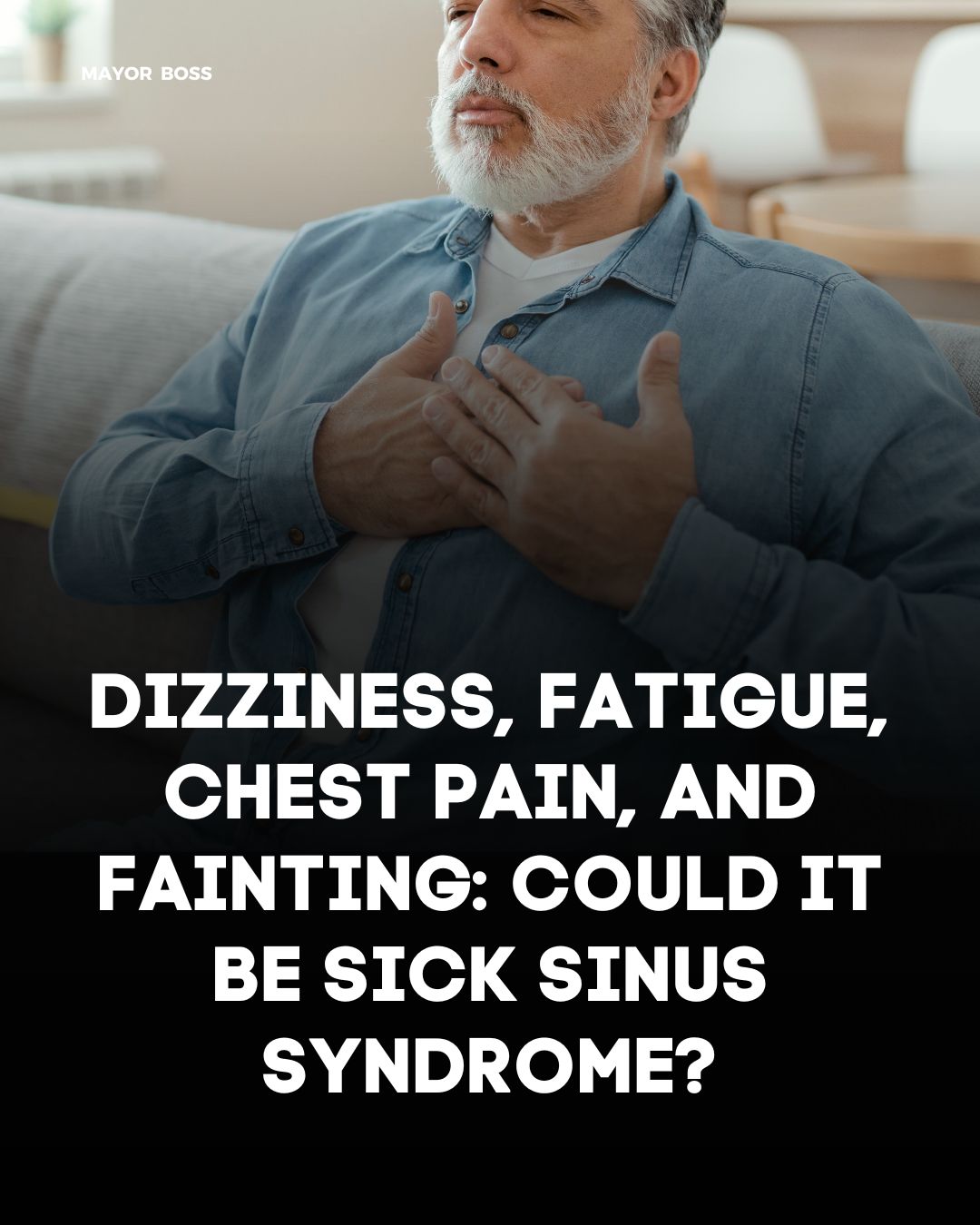Dizziness, Fatigue, Chest Pain, and Fainting: Could It Be Sick Sinus Syndrome?
When you start experiencing symptoms like dizziness, fatigue, chest pain, and fainting, it’s natural to feel concerned. These symptoms can be alarming and may point to a variety of health issues. Among these is a condition known as Sick Sinus Syndrome (SSS), a disorder that affects the heart’s natural pacemaker. Let’s break down what this condition entails, how it might relate to your symptoms, and what steps you can take for diagnosis and treatment.

What is Sick Sinus Syndrome?
Sick Sinus Syndrome is a term used to describe several conditions where the sinus node — the heart’s natural pacemaker — doesn’t work properly. The sinus node is responsible for setting the pace of your heartbeat. When it malfunctions, your heart may beat too slowly, too quickly, or irregularly. This inconsistency in heart rhythm can lead to a variety of symptoms, including the ones you’re experiencing.
Sick Sinus Syndrome Symptoms
The symptoms of Sick Sinus Syndrome can vary widely from person to person, but commonly include:
- Dizziness is due to changes in the heart rate, which affects blood flow.
- Fatigue is a result of your body’s organs not receiving enough oxygen-rich blood.
- Chest pain, which can occur if your heart is beating unusually hard or fast.
- Heart Palpitations: You might feel your heart is skipping beats, fluttering, or beating too hard.
- Shortness of Breath: Even with minimal exertion, you might find it hard to catch your breath.
- Fainting or Near Fainting: The reduced blood flow can cause you to feel lightheaded or faint.
- Confusion or Memory Issues: Especially in older adults, the decreased blood flow can affect cognitive functions.
- Trouble Sleeping or Feeling Restless: Some people with SSS have trouble sleeping or feel uncomfortable at night.
If you’re noticing these symptoms, especially if they’re new or worsening, it’s crucial to pay attention and act accordingly.
What Causes Sick Sinus Syndrome?
Sick Sinus Syndrome can stem from several factors:
- Aging: The most common cause, as the sinus node can deteriorate with age.
- Heart disease: Conditions like coronary artery disease can impact the sinus node.
- Medications: Certain drugs, especially those that affect heart rate, can exacerbate or reveal underlying SSS.
- Surgical damage: Procedures near the sinus node can inadvertently affect its function.
Diagnosis: The First Step to Understanding
Diagnosing Sick Sinus Syndrome typically involves a few key steps:
- Medical History and Physical Exam: Your doctor will want to know about your symptoms, medical history, and any medications you’re taking.
- Electrocardiogram (ECG): This test, which records the electrical signals in your heart, can show abnormal heart rhythms.
- Holter Monitor: A portable ECG you wear for 24-48 hours to capture any irregularities that occur during your daily activities.
- Event Monitor: Similar to a Holter monitor, but used for longer periods, allowing you to record your heart’s activity when you feel symptoms.
Treatment Options
Treatment for Sick Sinus Syndrome aims to manage symptoms and prevent complications, such as heart failure or stroke. Options may include:
- Lifestyle changes: Improving diet, increasing physical activity, and managing stress can help.
- Medication adjustments: If medications are contributing to your symptoms, your doctor may change your prescriptions.
- Pacemaker implantation: In many cases, a pacemaker is needed to maintain a regular heart rhythm.
Frequently Asked Questions
Can lifestyle changes alone manage Sick Sinus Syndrome?
While lifestyle changes can improve overall heart health and reduce symptoms, they often need to be combined with other treatments, such as medication or a pacemaker, especially in more severe cases.
Is Sick Sinus Syndrome curable?
There’s no cure for Sick Sinus Syndrome, but treatments like pacemaker implantation can effectively manage symptoms and improve quality of life.
How urgent is it to see a doctor if I have these symptoms?
If you’re experiencing these symptoms regularly, it’s important to see a doctor as soon as possible. Early diagnosis and treatment can prevent complications and significantly improve your prognosis.
In conclusion, if you’re experiencing symptoms like dizziness, fatigue, chest pain, or any other signs mentioned, it might be a sign of Sick Sinus Syndrome or another health condition. Early diagnosis and treatment are key to managing SSS effectively, so don’t hesitate to seek medical advice if you’re concerned about your symptoms.
